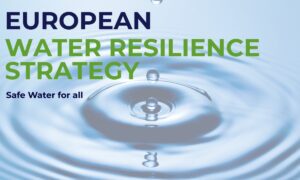The key goal of adopting the reporting standards, according to the commission, is ensuring that the companies are operating in accordance with EU sustainability regulations, while reducing their administrative burdens. EU law, in context of the green deal agenda, outlines a number of sustainability perspectives, ranging from environmental – such as climate and biodiversity – to social – such as human rights, worker and consumer rights.
The recently introduced ESRS, in line with the Corporate Sustainability Reporting Directive (CSRD), will adopt common standards to replace voluntary ones which may vary from company to company. This is expected to simplify the evaluation of companies’ sustainability performance. Some major companies will be obligated to apply the new reporting standards starting from 2025, reporting on the 2024 financial year – but the timeline depends on the category of the organisation. The European Financial Reporting Advisory Group (EFRAG) and the Commission has said that they will provide guidance to the involved companies.
In addition, the ESRS was prepared in accordance with global standards, such as the International Sustainability Standards Board (ISSB) and the Global Reporting Initiative (GRI). Applying these international standards will increase interoperability. Furthermore, multinational companies, subjected to different regulations will not be required to double report.



